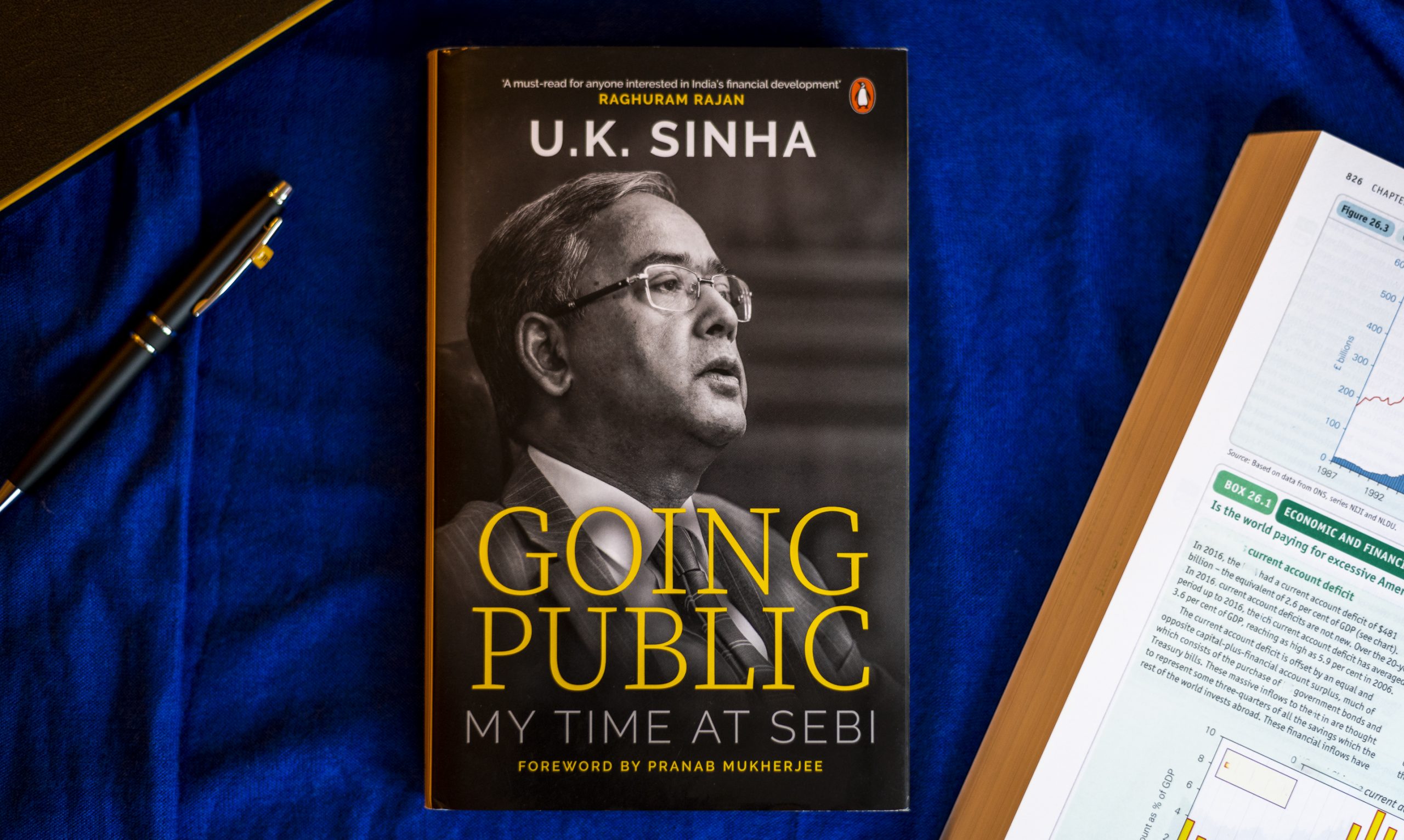
Upendra Kumar Sinha has contributed significantly to shaping India’s capital markets. He has been the guiding force behind reforms to protect the rights of investors and make stock exchanges more secure. Under his leadership, SEBI successfully fought a long legal battle with Sahara, and led the crackdown on other institutions which conducted unauthorized deposit collections.
Reiterating the importance of joint efforts of the government and regulatory bodies, Sinha in Going Public writes, ‘When there is a crisis or the financial stability is at stake, the government and the regulators have to mutually reinforce each other.’
Read on for a glimpse of how companies lure investors-
In spite of clear legal provisions, many companies have deliberately resorted to raising funds from hundreds of thousands of members of the public by taking recourse to the private placement route even though it was restricted for issue made to less than fifty subscribers. The maximum number of subscribers in a private placement has now been enhanced to 200 under the Companies Act, 2013. The main intention of companies that violate this rule has been to mislead investors and avoid stricter public scrutiny. Subscribers are denied full information about the true financial condition of the company and its actual business. They are not aware how much money is being raised, how many subscribers there are, the duration of the issue, or the corporate purpose for it. In addition, there is often a strong push from agents and salesmen. Investors are often duped into making these investments without any idea about the risk factors, or the remedy or guarantee available to them in case of refund or redemption.
In most cases, the preferred instrument is debt instead of equity. Generally, debentures or bonds (both terms are used interchangeably) are issued as these contain provisions of an assured rate of interest. People find these assurances very attractive. The rates of interest offered are very high so that these debentures can be easily sold. Several complications can be built into these instruments. A debenture can be convertible into equity, either partially or fully. The conversion into equity shares can take place at the option of the investor, compulsorily after a period or be linked to an event in future, such as the share prices of the company crossing a certain band. But, instead of highlighting these complications, agents push the instrument on the strength of the high rate of interest being offered.
Although many companies have taken recourse to it, the Sahara case is the biggest example in the country of a deemed public issuance. The surprising fact, however, is that neither SEBI nor any other government agency such as the RBI or MCA raised any red flag about such a large amount of money being raised from the public in utter violation of the law. Had Sahara Prime City Ltd (a group company) not decided to list on the stock exchange and thereby be forced to make disclosures to SEBI regarding its group entities such as Sahara India Real Estate Corporation Ltd (SIRECL) and Sahara Housing Investment Corporation Ltd (SHICL), the matter would never have come to light. It is also significant that the process of issuing these optionally fully convertible debentures (OFCDs) started around the same time as the RBI placed severe restrictions on the working of Sahara India Financial Corporation Ltd (SIFCL), a non-banking finance company of the group. SIFCL had been asked by the RBI not to raise any fresh deposits from the public and to close all existing deposits and reduce its public liability to nil in a given time frame. It is no coincidence that around the same time, these new instruments were issued by two companies of the Sahara group.
According to their own admission, the net amount raised by the two companies was more than Rs 24,000 crore from more than three crore investors.
Upendra Kumar Sinha is known to have been the longest-serving chief of SEBI. He also served as the chairman and managing director of UTI Mutual Fund and was head of the Capital Markets division in the Ministry of Finance. In his candid and historically important memoir Going Public, Sinha reminisces on his journey through India’s changing financial landscape.
To know more, read Going Public!









